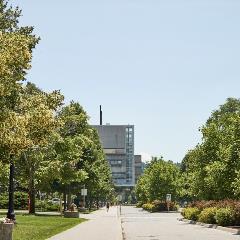This cycle includes one week of clinical duty in critical care followed by a week of on-call responsibility. This week has been structured to mimic the typical work week of intensivists in practice throughout much of Canada. Upon completion of this call week, the trainees complete a week of non-clinical duties whereby most trainees accomplish their studying, teaching of other individuals, as well as maintaining their competency in their base specialty. Trainees have applauded this structure as a major strength of our program since it prepares individuals very well for entrance into independent practice in the specialty.
The Critical Care Medicine (Adult) Residency Program at McMaster University is a two-year program. Applicants must have base specialty training from Internal Medicine, General Surgery, Emergency Medicine, Anesthesia, or Cardiac Surgery. Applications will be considered if the candidate is already certified in one of these specialty programs or will be eligible for certification prior to the end of the two-year program. The number of residents accepted to the program varies each year.
The program, while utilizing the regional resources of both McMaster University and its affiliated teaching hospitals, is centrally coordinated in a multidisciplinary fashion, thus reflecting the cross-specialty horizontal nature of Critical Care Medicine in Canada. Recognizing the varied backgrounds of the Critical Care trainees, the program is set up to enable a great deal of flexibility with regards to the details of training. This will ensure that – regardless of background – each individual, whether emanating from Medicine, Surgery, or Anesthesia, will be able to function as an ICU consultant on any type of patient. As a result, rotations will vary according to an assessment of the individual’s strengths and weaknesses.
The trainee functions at a progressive level of responsibility, assuming the role of ICU coordinator as soon as it is appropriate to do so, although always with direct faculty support. On-call for the ICU coordinator is typically out of hospital as support to the in-house physicians. The ICUs are staffed by residents from medicine, surgery, anesthesia, and emergency medicine, as well as by independently-licensed physicians. Therefore, our trainees function in a role that oversees, acting as a supervisor and teacher for junior residents.
During the two-year program, our trainees are required to complete 16 block rotations in the ICU at Hamilton Health Sciences and St. Joseph’s Healthcare Hamilton. These rotations are designed to provide a broad clinical experience in several busy, multidisciplinary intensive care units. These core rotations are distributed throughout the program and ensure that the trainee is exposed to a large variety of medical and surgical patients. Given the vast referral population, trainees will have a great opportunity to care for patients of specialty care programs, such as Trauma, Burns, Oncology, and all surgical subspecialties, including Neurosurgery and Cardiovascular Surgery.
The remaining 10 blocks are available for elective rotations. These rotations are provided to strengthen and diversify one’s skills and abilities. Electives are available in virtually every discipline. They must have clearly-described learning objectives for critical care. The educational curriculum includes academic half-day seminars, journal clubs, regional rounds, as well as other sessions which all round out a full academic experience.
The Critical Care Medicine (Adult) Residency Program at McMaster University offers a wide-ranging and full clinical experience complemented by an enthusiastic faculty that support the academic objectives of adult learners dedicated toward a fulfilling career in critical care medicine.

